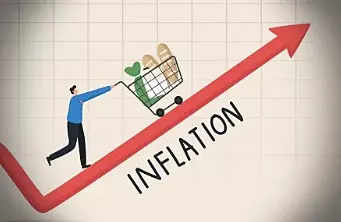Households’ current inflation perception declined by 10 basis points (bps) from the previous survey round to 8.1 per cent in January 2024. But the median inflation expectation for the three months ahead increased by 10 bps to 9.2 percent, while it reduced for one year horizon by 10 bps to 10 per cent in the latest survey round.
The Reserve bank too has cautioned about the future inflation trajectory in its latest monetary policy statement. “ The inflation trajectory, going forward, would be shaped by the outlook on food inflation, about which there is considerable uncertainty” governor Shaktikanta Das said. “Adverse weather events remain the primary risk with implications for the rabi crop. Increasing geopolitical tensions are leading to supply chain disruptions and price volatility in key commodities, particularly crude oil”.
The households’ assessment of inflation is in more or less in sync with that of the central bank’s which is cautious about food inflation. A majority of survey participants expect a rise in price and inflationary pressures especially for food product category for the three months horizon.
A higher share of respondents foresees a rise in inflation in the near term but, over a one-year horizon, the share of households anticipating higher inflation has moderated as compared to the previous survey round.
In terms of the population group, the returned and the self employed are more hawkish on inflation. Gender-wise, men are more hawkish on inflation, the survey said.The survey is conducted at bi-monthly intervals by the Reserve Bank; it provides directional information on near-term inflationary pressures as expected by respondents and may reflect their own consumption patterns. Hence, survey results reflect respondents’ views, which are not necessarily shared by the Reserve Bank.
(You can now subscribe to our Economic Times WhatsApp channel)











